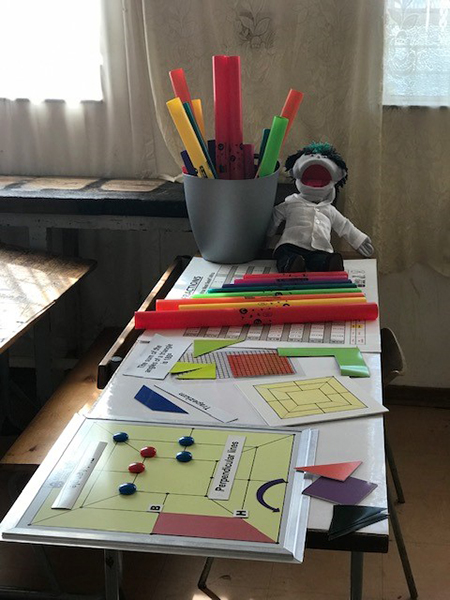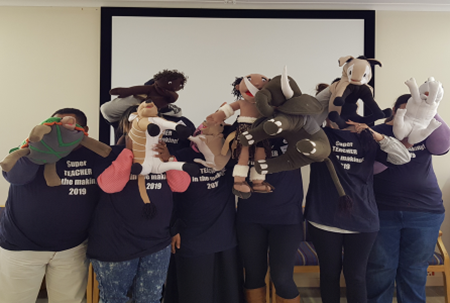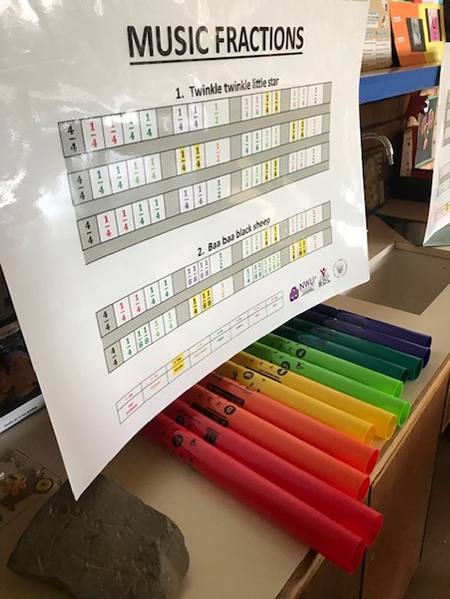As in many other countries, the South African schooling system is formal and performance driven as teachers work toward the completion of a content-driven curriculum. This is especially true for mathematics, and many teachers view mathematics as abstract facts that are disconnected from daily life.
According to Prof Marthie van der Walt from the School for Science and Technology Education in the Faculty of Education at the North-West University (NWU), it seems as if learners in South Africa view mathematics as a set of abstract rules and procedures without relevance for their daily lives, resulting in disengagement and a fear for the subject.
Prof Van der Walt has championed the development of an innovative mathematics teaching and learning kit, called Tshimologo (the SeTswana word for “new beginning/season”). She hopes that the Tshimologo Mathematics Shoestring Kit (TMSK) is going to lead to a new season in mathematics education.
“A particular concern in mathematics education is the transmission-mode teaching and learning that characterises many classrooms,” she says.
She feels this is often not effective and that TMSK holds affordances in transferring the wonder that is maths. TMSK is an educational package that includes a tutorial course, indigenous games, boomwhackers and music, and puppetry and has been given free to communities in Limpopo, the North West and Northern Cape.
Games, music and puppetry are among its educational tools. On the music front, boomwackers are used. These are hollow, light-weight and coloured-coded plastic percussion tubes that are tuned to a specific musical pitch by length. Western music notes were transposed to their fraction “brothers/sisters” and colour coded according to the tubes. This assists learners to develop a more nuanced understanding of fraction concepts.
Then there are the puppets. “When teachers utilise puppets in their classrooms, the puppet becomes an extension of the teacher and is perceived as a person,” explains Prof Van der Walt.
“TMSK makes use of hand-crafted puppets that tell indigenous South African stories related to maths themes. Puppetry holds affordances in advancing mathematical literacy in young children.”
Prof Van der Walt says it is all about making mathematics relatable. “It is about putting learners in an environment where mathematics feels more home than alien.
“Teachers should contextualise mathematics to diverse South African learners and create authentic learning experiences, utilising among others a pedagogy of play. This might result in affective outcomes such as a willingness to engage and positive attitudes towards the subject. Learners’ productive dispositions are important when they engage in mathematics. Otherwise it seems learners experience mathematics as a boring subject,” she adds.
Adding to the real-life flavour of TMSK is that it is customised for South African contexts, says Prof Van der Walt. “This would make it more relevant and accessible for South African learners.”

The Tshimologo Mathematics Shoestring Kit (TMSK) is going to lead to a new season in mathematics education.

Games, music and puppetry are among its educational tools.

These boomwackers are hollow, light-weight and coloured-coded plastic percussion tubes that are tuned to a specific musical pitch by length. Western music notes are transposed to their fraction “brothers/sisters” and colour coded according to the tubes.
Watch this video to see how the boomwackers are used.
